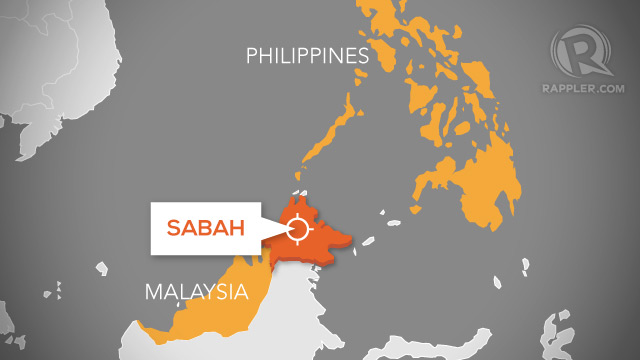SUMMARY
This is AI generated summarization, which may have errors. For context, always refer to the full article.

MANILA, Philippines – No one believed their “absurd” claim they would go to Sabah, now the site of a standoff between Malaysian authorities and up to 200 Filipino gunmen.
“Pinagtatawanan mo na lang. ‘Yun pala naging totoo,” said Nazif Abduraman, mayor of Simunul town in Tawi-Tawi, the origin of a huge portion of the group claiming to be the Royal Sulu Sultanate Army. (We just laughed at them initially. Little did we know they would actually do it.)
The Malaysian government on Thursday, February 14, said its security forces surrounded about 80 to 100 Filipino gunmen in Sabah, which has a history of incursions by armed Filipino Islamic groups.
On Friday, February 15, it assured the Philippine government that it intends to end the standoff peacefully.
In a statement, the Department of Foreign Affairs said Malaysian Foreign Minister Anifah Aman called up Foreign Affairs Secretary Albert del Rosario Friday morning “to assure the secretary that the Malaysian government is addressing the presence of an estimated 200 Filipinos, some of whom are armed, in Lahad Datu, Sabah through negotiations to encourage them to leave peacefully, for which the secretary expressed his appreciation.”
Del Rosario also asked Malaysian authorities to ensure the safety of the rest of the Filipinos in Sabah.
What exactly happened?
According to a senior police official, Camp Crame received a report on February 7 about a supposed plan of Datu Agimodin Jamalul Kiram, one of the heirs of the Sultanate of Sulu, and 70 of his followers to enter Sabah from the island-town of Simunul. The report that reached the Philippine National Police at the time said the group planned to “create havoc” in the coming general elections in Malaysia.
The Kiram family is one of the heirs of the Sultan of Sulu, which ruled over many islands on the Sulu Sea including what was known then as Northern Borneo (Sabah).
In a phone interview with Rappler on Friday, Mayor Abduraman recounted details from various sources, including the police, while making the disclaimer he has yet to re-confirm these details.
Abduraman said it all began with initial information, around late last week, that the group calling itself the Royal Sulu Sultanate Army plans to go to Sabah.
‘This is our homeland’
The provincial police tried to persuade them not to push through with their plans, said Abduraman. But in the words of the police director, the army supposedly said of Sabah: “This is our homeland, this is our place. No one can stop us from going there.”
Then at around 8 pm on Saturday, February 9, a message from his staff surprised Abduraman: the Royal Sulu Sultanate Army has left for Sabah.
Unconfirmed estimates, according to Abduraman, show around 200 gunmen coming from Simunul town alone. This is a small fraction of their 4th class town with 34,500 people, based on the latest government statistics.
Others came from places like Basilan and Sulu.
One motorboat, locally called a lantsa, can fit 100 people in all. The Royal Sultanate Army used around 3 motorboats, said the mayor.
Sabah: Still ours?
Abduraman said the government should see beyond this supposed publicity stunt.
He said this, for one, will affect thousands of Filipinos living without passports in Sabah. He himself has relatives there, who fear Malaysia might tighten its immigration laws because of the standoff.
“We should go beyond the group… Are we still trying to push for our claim to Sabah?” he said. “This is a matter for our leadership to decide.”
The Philippines’ claim to Sabah, albeit dormant, has complicated its ties with Malaysia.
For one, said top diplomat Rodolfo Severino in his book Where in the World is the Philippines?, “the Philippines is unable to establish consulate in Sabah.” Establishing a consulate, he explained, “is an event that would further indicate a recognition by the Philippines of the legitimacy of North Borneo’s place under Malaysia’s sovereignty.”
The Philippine government’s presence in Sabah, according to Severino, could help in problems involving Filipinos there, such as human trafficking. – Rappler.com
Add a comment
How does this make you feel?
There are no comments yet. Add your comment to start the conversation.